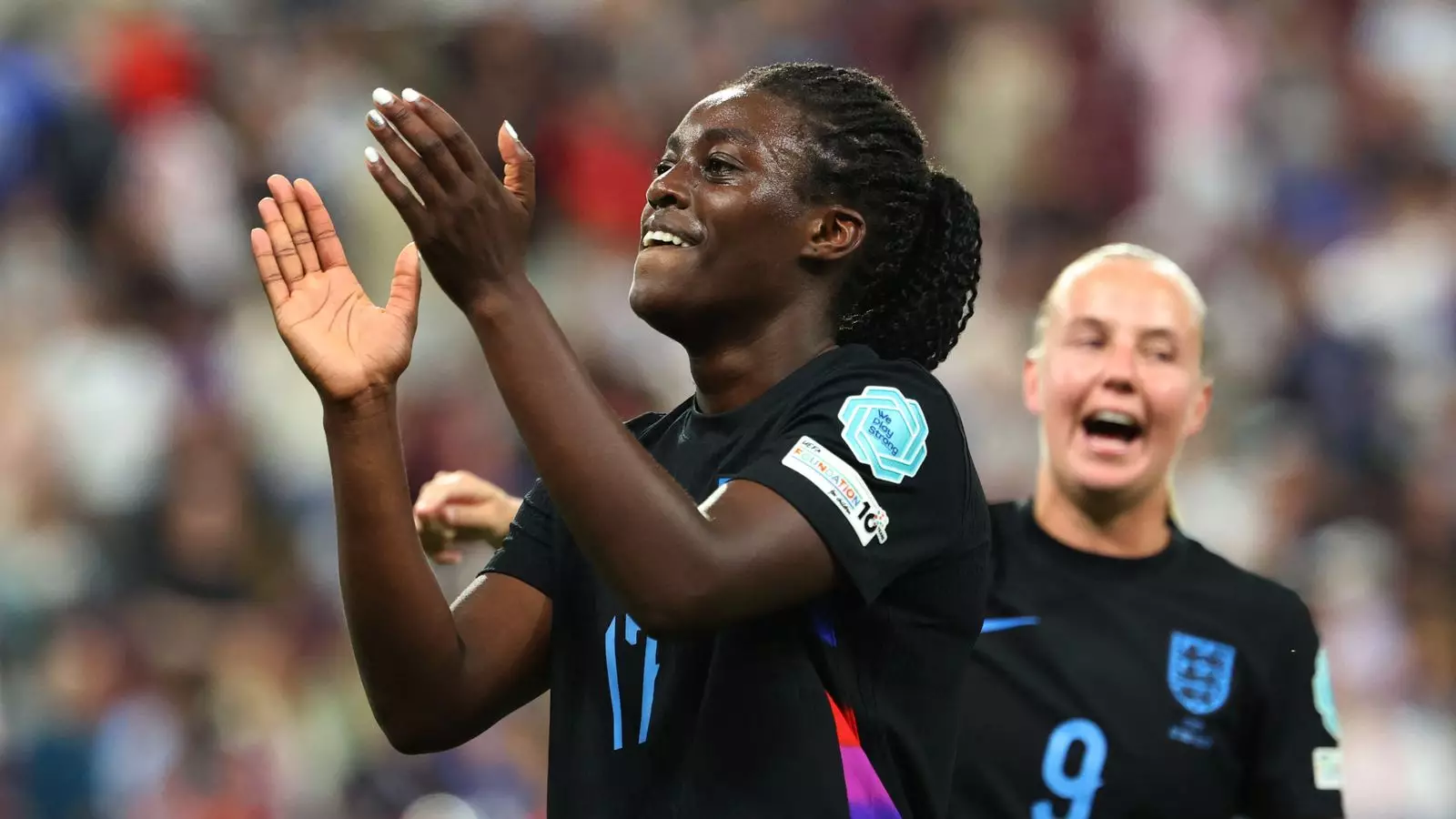In recent years, women’s football has undergone a seismic transformation, shattering its humble beginnings marked by neglect and underachievement. Yet, this progress reveals a double-edged sword. What once was a rare, glorious occasion—a team reaching the final—has become seemingly routine. The England women’s team, the Lionesses, now repeatedly finds themselves in decisive matches against powerhouse Spain, signaling a new era where finals are expected rather than celebrated. This shift challenges the very essence of what makes sporting triumphs meaningful. When final appearances lose their rarity, they risk morphing into mere milestones rather than milestones worth savoring.
Gone are the days when England’s women’s team was an underdog, overshadowed by men’s football’s storied history. Now, with consistent finals appearances, there’s a dangerous complacency creeping in. The thrill of perceived unpredictability has diminished, replaced by a sense of inevitability. Such a phenomenon undercuts the passion, tension, and joy that define sporting greatness. Fans and players alike must grapple with the unsettling thought that extraordinary achievements might become mundane if they’re viewed through the lens of repetitive success.
The Myth of Underachievement and the Reality of Progress
For decades, women’s football was dismissed, marginalized, and stigmatized. The narrative was skewed toward underachievement, often framing these teams as perpetual outsiders. However, this has starkly changed. England’s recent history—including victories at Euro 2022 and a semi-final run in the World Cup—reveals a team that refuses to accept its previous identity as “losers.” Instead, they’ve crafted a new story of resilience, growth, and undeniable talent.
This progression challenges the narrative that women’s football remains a side show or a niche pursuit. It’s a testament to relentless effort, strategic development, and societal change that these teams have consistently competed at the highest levels. Yet, while this progress showcases their resilience, it also accentuates the risk of plateauing. When expectations grow, so does the pressure, transforming sporting excellence into a relentless cycle of high-stakes finals. The question is whether this sustained success will inspire societal admiration or merely set the stage for disappointment when victories are presumed to be a forgone conclusion.
The Political and Cultural Dimension: More Than Just a Game
The impending clash between England and Spain transcends the pitch. Both teams symbolize broader societal struggles for gender equality, respect, and recognition. Spanish captain Irene Paredes’s remarks about recent societal shifts underscore this point. Though women’s football has surged forward, recent scandals—like the infamous kiss involving Spain’s federation president—serve as stark reminders that gender tensions persist even amid progress.
This final acts as a mirror reflecting not only athletic prowess but also cultural battles. For Spain, the victory would symbolize a triumph over entrenched machismo and outdated attitudes, while for England, it is an opportunity to cement their leadership in women’s sports. The outcome has implications beyond medals; it could influence the societal perception of women’s rights and the value placed on female athletes. Champions in sport often become catalysts for social change, and this match is no exception. Both nations stand at a crossroads where sporting victory could either accelerate progress or expose fragility in long-standing gender issues.
The Harsh Reality Behind the Spotlight
While the media often highlights the glamour, skill, and dramatic moments, beneath the surface lies a world fraught with challenges. For Spain, wounds from recent controversies threaten to overshadow this historic final. For England, the weight of high expectations and the pressure of maintaining their rising dominance present their own hazards. The narrative of grit and resilience is valid, but it must also confront the systemic struggles that shape women’s football: unequal funding, media discrimination, and societal stereotypes.
Contemporary women’s football isn’t just a contest of athleticism; it’s a battleground for equality. The fierce competition masks the ongoing battles for respect and recognition both within and outside the sport. The teams, their stories, and their victories serve as daily reminders that while progress is undeniable, it is fragile and dependent on continual societal effort. The final isn’t simply a game—it’s a challenge to redefine what success means for women athletes and an opportunity to confront uncomfortable truths that still linger in the shadows.
Is the Rising Power of Women’s Football a Genuine Leap Forward or an Illusion of Progress?
The crescendo of women’s football’s rise prompts questions about whether this moment signals authentic change or just a fleeting surge of popularity. While the undeniable skill and dedication of the players are commendable, commercial interests and media attention require scrutiny. Are these moments of prominence sustained by genuine societal shifts, or are they benefitted by fleeting trends and superficial sympathies?
The significance of a second consecutive final for England and Spain lies not only in the sporting victories but in the potential to challenge deep-rooted inequities. Yet, the enthusiasm must be tempered with skepticism. The real test lies in whether these teams, and the institutions backing them, can propel lasting social change that transcends the scoreboard. Success must translate into sustained efforts for gender equality, fair media coverage, and equitable funding—otherwise, defining moments risk becoming mere flashpoints rather than catalysts for meaningful transformation.
The spectacle of women’s football today is a testament to progress, but beneath its surface lies a complex struggle—a push and pull between hope and reality. These finals are more than games; they are battlegrounds for cultural change, and their outcome will influence the societal narrative for years to come.

Leave a Reply